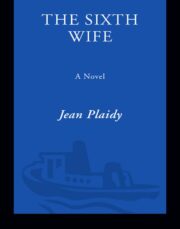I do not remember ever being alone. I even had to sleep in Mama’s room, and Lehzen used to sit with me until Mama came to bed so that I should not be left to myself. How significant it was that one of the first things that occurred to me on that memorable day was: Now I can be alone.
So in my journal I would write that which would win their approval and that was sometimes not in accordance with my true feelings. I have always found great pleasure in writing, in music and painting; and I truly believe that I could have excelled at any of these occupations if destiny had not had other plans for me.
When I was a child and beginning to be aware of the frustrations of being watched and forbidden to do so many things which I wanted to, I longed to have a secret diary in which I could write down the daily happenings, for one is apt to forget important details if one does not record them at the time. I wanted to write of my life in Kensington Palace, of Lehzen, Spath, of my beautiful lifelike dolls and my scandalous uncles; I wanted to write of sinister Sir John Conroy and his influence on Mama and his determination to ensnare me when I was too young and inexperienced to resist him; I wanted never to forget the shivers he sent down my spine, for I do believe he seemed to me as menacing as my wicked oneeyed Uncle Cumberland. I wanted to be quite frank about the growing change in my feelings towards Mama. Naturally one must love one’s mother; it is a duty; but I used to wish I could stop my eyes from seeing so much and my mind from coming to such conclusions. But that is no way for anyone to act—certainly not one who may become a queen.
If I could have had my secret diary, I could have confided in it. I could have recorded the sudden changes in my feelings. I could have found a reason for those sudden outbursts which Mama referred to as the “storms”. I might have come to a better understanding of myself as well as others.
But now, at this time, I am my own mistress, and in my lonely years when the one who was all the world to me has been taken away, I can indulge my whim. I like to spend long hours remembering the past, re-reading my journals and setting it down as I should have done had it been for my eyes alone. There are differences now from what I wrote then, and in the writing I seem to see myself more clearly, to know myself—and the task absorbs me. I recall days of childhood in Kensington Palace—the prison, as I called it. I like to think back to that time when I first realized that I was not as other children about me, that I was Victoria who was destined for a crown.
That destiny dominated my childhood; it was the reason for Mama’s concern. How she longed for the crown to be mine—far more than I ever did—preferably before I was of age so that she could reign in my stead. How she hated poor old Uncle William because he refused to die! How she hated all my paternal uncles! She was protecting me from them, she would say. I must never forget how much I owed her. Poor Mama, she did not know that one cannot wholeheartedly love, however much one wants to, just because it is one’s duty. There were times when Mama could become quite wearisome.
Now I can write for my eyes alone without consideration of what may be construed by my words, without the probing eyes of Mama or Lehzen finding in my simple observations characteristics which must be suppressed. Poor Mama! Dear Lehzen! They are beyond passing judgement on me now. And I am a lonely widow, with only memories of happier days left to me and the hope of finding comfort in the memory of time past.
The Wicked Uncles
IF MY COUSIN CHARLOTTE HAD NOT DIED SO TRAGICALLY— and her baby with her—I should never have been born and there would never have been a Queen Victoria. I suppose there is a big element of chance in everybody’s life, but I always thought this was especially so in mine. But for that sad event, over which the whole nation mourned, my father would have gone on living in respectable sin—if sin can ever be respectable—with Madame St. Laurent who had been his companion for twenty-five years; my mother would have stayed in Leiningen, though she might have married someone else, for although she was a widow with two children, she was only thirty-one years old and therefore of an age to bear more children. And I should never have been born.


"The Sixth Wife: The Story of Katherine Parr" отзывы
Отзывы читателей о книге "The Sixth Wife: The Story of Katherine Parr". Читайте комментарии и мнения людей о произведении.
Понравилась книга? Поделитесь впечатлениями - оставьте Ваш отзыв и расскажите о книге "The Sixth Wife: The Story of Katherine Parr" друзьям в соцсетях.